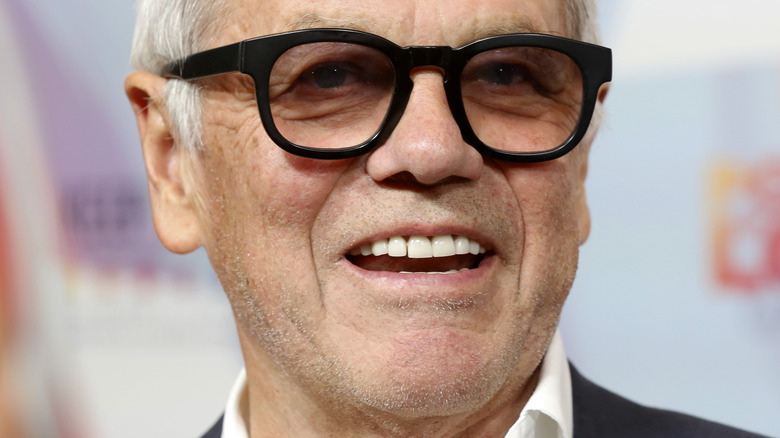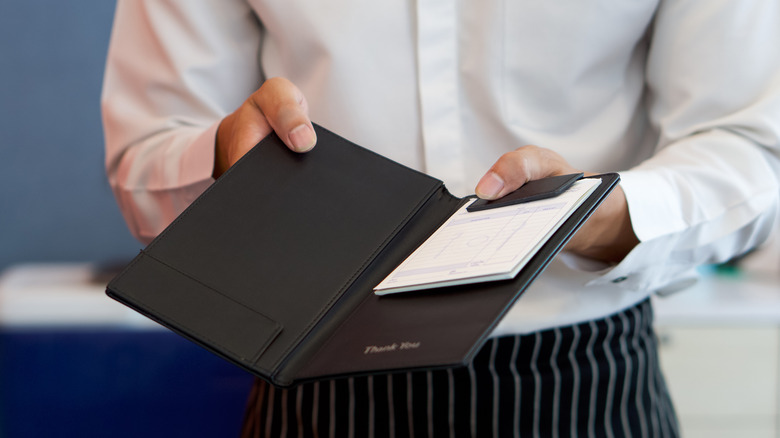Why Wolfgang Puck Thinks Servers Should Make Six Figures
Workers across America have been trying to get their wages raised for sometime. According to NPR, Target employees' hourly rate just got bumped up to a maximum of $24. The Fight for 15 movement also helped lead the push for a $15 minimum wage across the country and has notably stood with food workers across California, Starbucks workers who continue to unionize across the U.S., and many more groups.
This movement to pay Americans a higher wage has caught on with many, but the ideology has caused a split among a number of celebrities. Eater reports that Guy Fieri raised a ton of money for restaurant relief during the pandemic but had less support for the average restaurant employee, who he claimed would rather sit back and collect unemployment benefits than work. Others, like Wolfgang Puck, have voiced their support for a salary increase for the regular worker and claim that these individuals should make much more money for their hard work.
Wolfgang Puck's payment rationale
According to Yahoo! Finance, renowned chef Wolfgang Puck claimed that a restaurant's wait staff should make as much as the chefs, and some servers should make $120,000 per year. Puck defended this rationale by claiming that tipping culture won't go away anytime soon, and restaurants should implement a service charge in order to ensure that servers make as much as a business' top chef. Puck also cited the massive wage disparity between the kitchen staff and front-of-house staff. On average, the typical server makes half of what a chef brings home, and Puck believes more should be done to level the economic playing field for both jobs, despite rising wages in the restaurant industry.
The star chef also believes the restaurant industry doesn't plan to give up how it does business anytime soon. Puck stated that he knows that waitstaff at higher-end restaurants pull in much more money via tips when compared to workers at smaller establishments and many wouldn't fight to get rid of this system, especially when it may benefit them. At the end of the day, Puck thinks a system that utilizes a service charge evenly distributed to waitstaff and chefs could be an option, but only time can tell if such a model ever makes it into the American dining industry.

